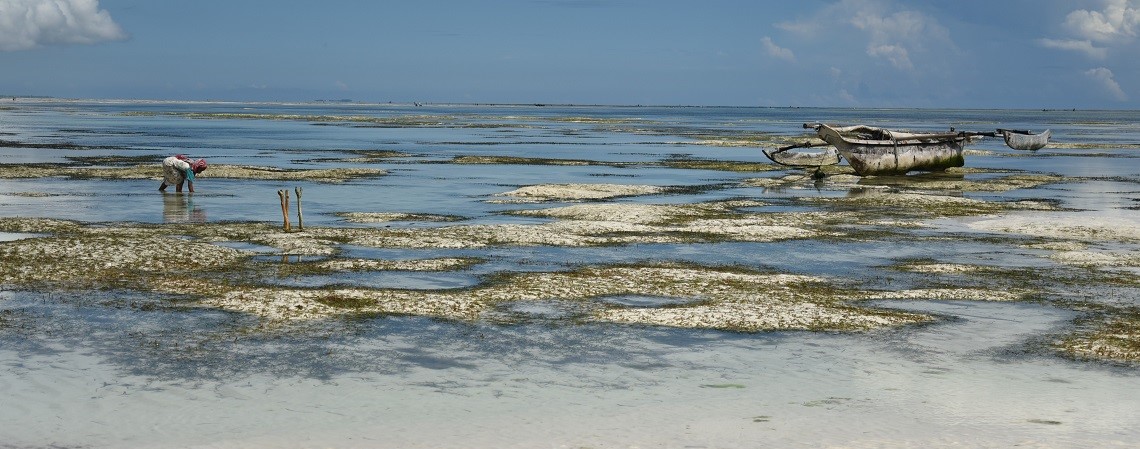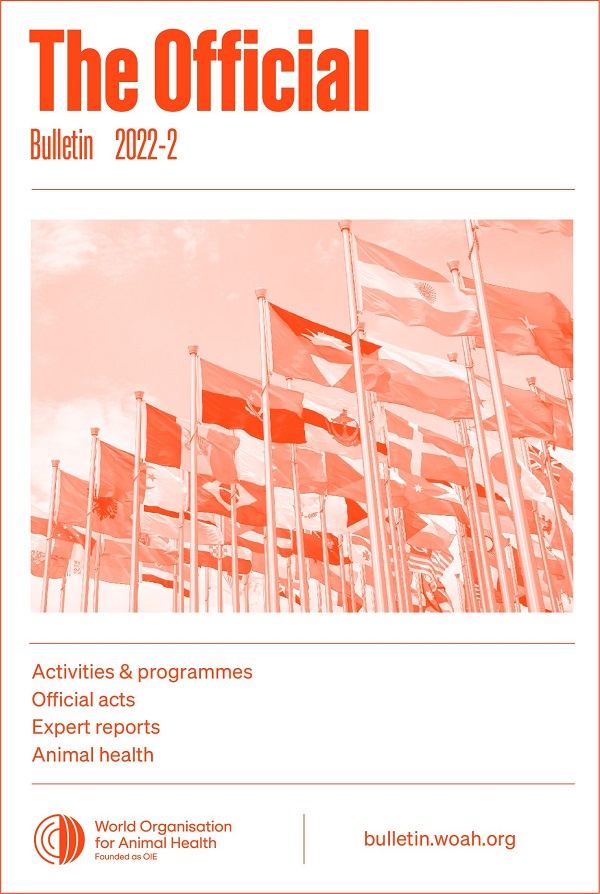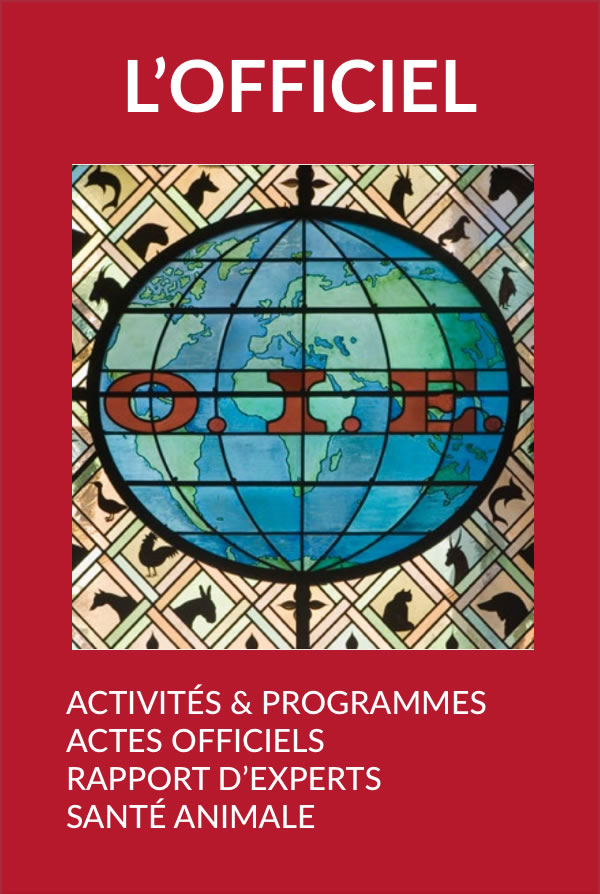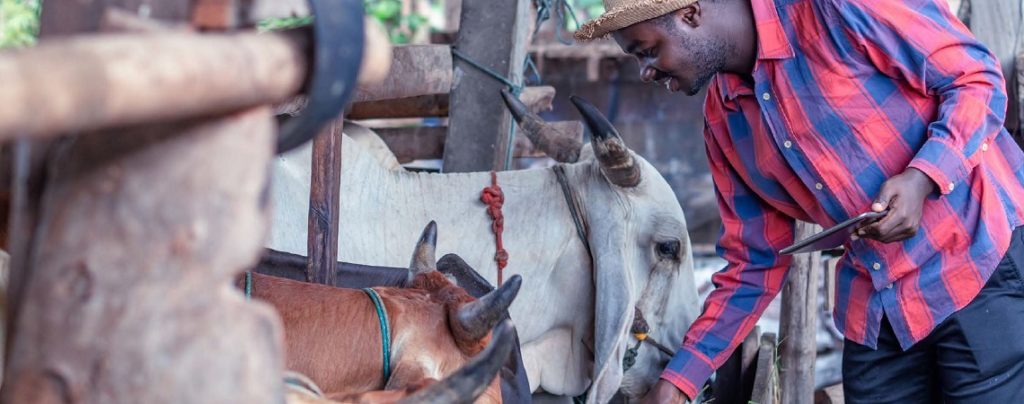Activities & Programmes Posted on 2022-09-21 14:38:34
partners
Antimicrobial resistance – reducing environmental contamination
Keywords
The GLG consists of world leaders and experts from across sectors working together to accelerate political action on AMR. The mission of the GLG on AMR is to collaborate globally with governments, agencies, civil society and the private sector through a One Health approach, and to advise on and advocate for prioritised political actions for the mitigation of drug-resistant infections through responsible and sustainable access to, and use of, antimicrobials.
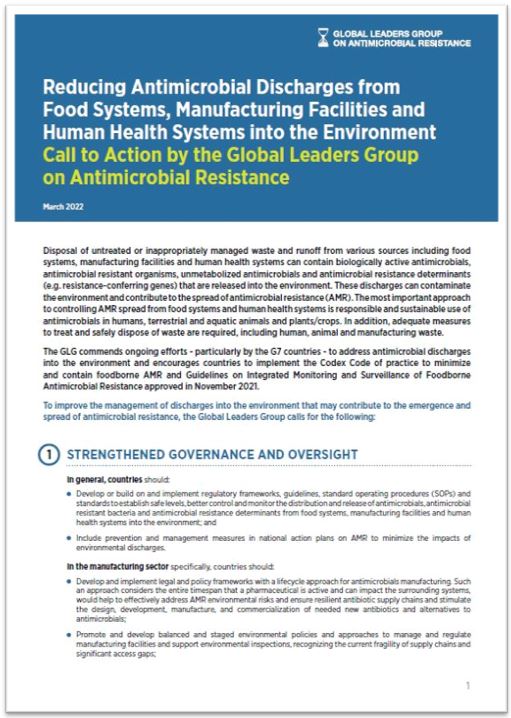 The GLG on AMR has, since its inauguration, issued several information notes, statements and calls to action, including a call to action on reducing antimicrobial discharges from food systems, manufacturing facilities and human health systems into the environment [2].
The GLG on AMR has, since its inauguration, issued several information notes, statements and calls to action, including a call to action on reducing antimicrobial discharges from food systems, manufacturing facilities and human health systems into the environment [2].
This call to action on discharges into the environment addresses the disposal of untreated or inappropriately managed waste and runoff from different sources such as human health systems, food systems and manufacturing facilities, because these can contain biologically active antimicrobials, antimicrobial-resistant organisms, unmetabolised antimicrobials and antimicrobial resistance determinants (e.g. resistance-conferring genes) that contaminate the environment.
The call to action is timely, as evidence builds on how this contamination of the environment can contribute to the spread of AMR. It highlights the necessity for strengthened governance and oversight, a fundamental requirement of activities to mitigate AMR. It points out the importance of containing at source and improving discharge management. Preventing environmental contamination is pivotal. The call to action emphasises surveillance, innovation and research across public and private sectors into cost-effective and greener waste management technologies.
https://doi.org/10.20506/bull.2022.2.3323
References
- Interagency Coordination Group on Antimicrobial Resistance (IACG) (2019). – No time to wait: Securing the future from drug-resistant infections. Report to the Secretary-General of the United Nations. April 2019.
- Global Leaders Group on Antimicrobial Resistance (2022). – Reducing antimicrobial discharges from food systems, manufacturing facilities and human health systems into the environment. Call to action by the Global Leaders Group on Antimicrobial Resistance. March 2022.
- Global Leaders Group on Antimicrobial Resistance (2021). – Antimicrobial resistance and the climate crisis. Information note of the Global Leaders Group on Antimicrobial Resistance. October 2021.
- Food and Agriculture Organization of the United Nations (FAO), World Organisation for Animal Health (WOAH), World Health Organization (WHO) & United Nations Environment Programme (UNEP) (2021). – Strengthened partnership aims to accelerate coordinated strategy on human, animal and ecosystem health. Joint FAO/WOAH/WHO/UNEP press release.




